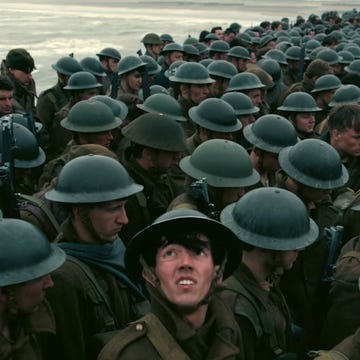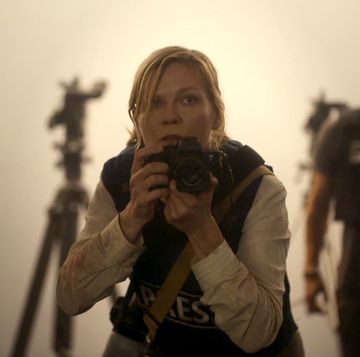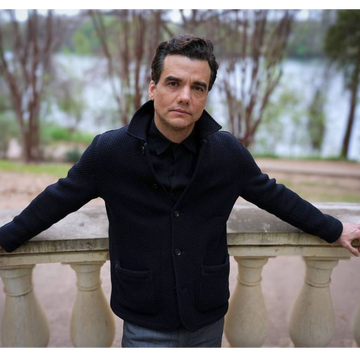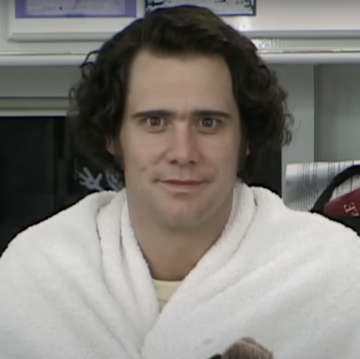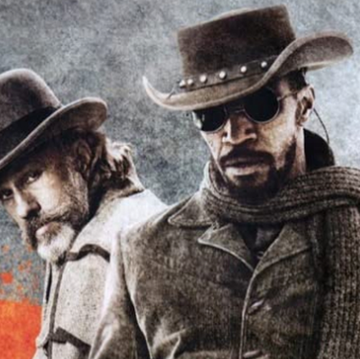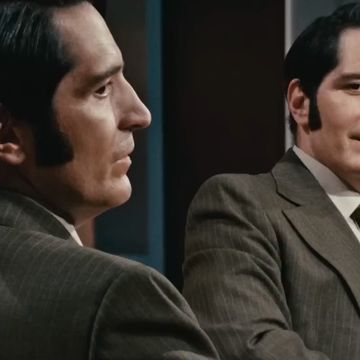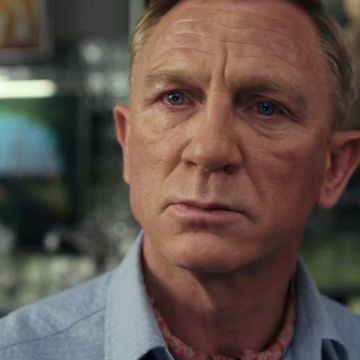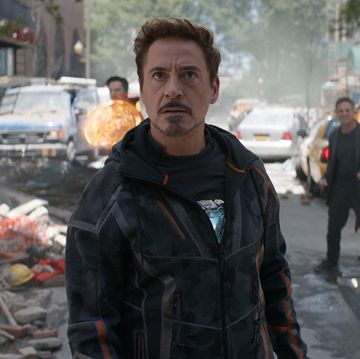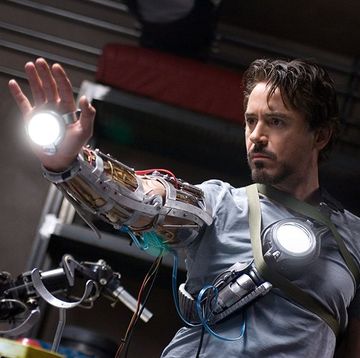The Fear is spreading. Its name at the moment is Ebola. Despite every possible assurance from every possible person in the know—from political leaders to medical experts to members of the CDC—two-thirds of Americans are afraid of Ebola spreading in the United States. This being America, there are of course lunatics to represent the fear in the most iconic and ludicrous ways—everything from the passenger who showed up at Dulles Airport in a hazmat suit, to Navarro College of the world's population.
The story of the flu, however, does not frighten us. It does not contain the narrative elements conducive to mass anxiety. The flu is what you get when you're a kid and you have to stay home and watch television and you throw up and your mother makes you chicken noodle soup. Flu is a manageable story, which is why the numbers don't seem to matter much, nor the mass of death.
Ebola, on the other hand, has all the terror that any story might require. And not all of it is made up: The World Health Organization reports that the mortality rate for Ebola cases in West Africa has reached 70 percent. There is a chance of a true global pandemic emerging, which would devastate West Africa in particular. It's not the fear itself that's so wrong, but the way the fear works. And for that, we have the culture industry to thank.
Mass disease is a great beginning to a story. It creates a world of complete danger, of glamorous reduction in which systems collapse and the truth of basic human nature emerges. One of the first major works of prose fiction in English literature was Daniel Defoe's A Journal of the Plague Year, published in 1722. Plague has been a mainstay of thrillers and science fiction and the films made from them ever since. It is one of the rare situations in which you can aim for straight realism and keep the feel of a thriller—from The Andromeda Strain to Outbreak to Contagion. Imagining what a plague would look like is a job film directors take up every couple of years or so. Zombie films, particularly the darker, later versions of the 28 Days Later variety, are also indirectly about the plague. So are the Planet of the Apes movies. No wonder Americans are afraid of Ebola. They've seen it take over the world hundreds and hundreds of times. On the screen.
There is one unfortunate tendency in all of these movies. The storylines generally blame the rise of the disease on our advanced, interconnected, scientifically-driven world. The disease is the nemesis of human hubris. The plague is the price we eventually pay for the sophisticated universe we have built, whether that means the abuse of chimps, military research, or simply flying around the world to party. The impulse of science fiction is to convert technology into tragedy. Frankenstein was the original: a scientist creating life that turns into a monster who stalks him over the surface of the earth. The narrative of modernity is a version of Icarus: We fly too close to the sun and then crash. The plague is our crash.
Obviously the story of that fear is unrelated to reality. It is particularly unrelated to the reality of Ebola. The modern medical systems that we possess in the West mean that Ebola should not be a cause of mass fear. It is the lack of a modern medical system in West Africa that should be a cause of mass fear. Here is one of those rare instances in which politicians are being more responsible than everybody else. Rick Perry, of all people, refused to pander to the fear and kept his scheduled economic development trip to Europe. He is actually being presidential instead of standing around looking presidential. Meanwhile, over 40,000 people have retweeted Chris Brown's suggestion that the plague is all government conspiracy, an idea that comes straight from the movies.
The crazy fear does have power. Calls for closing the borders with West African countries have grown. Ebola needs to be dealt with by exporting modern technologies there. Liberia needs 2.4 million boxes of gloves to deal with the outbreak. It currently has 18,000 boxes. America, and American soldiers, can do real good—real, uncomplicated good—by exporting its medical technology and its wealth and power to West Africa. The fear that is gripping America threatens to forestall that very necessary aid that could save tens of thousands of lives. The dreams of the end of the world will prevent us from actually dealing with the real threats. The apocalyptic fantasies may overwhelm the apocalyptic realities.



